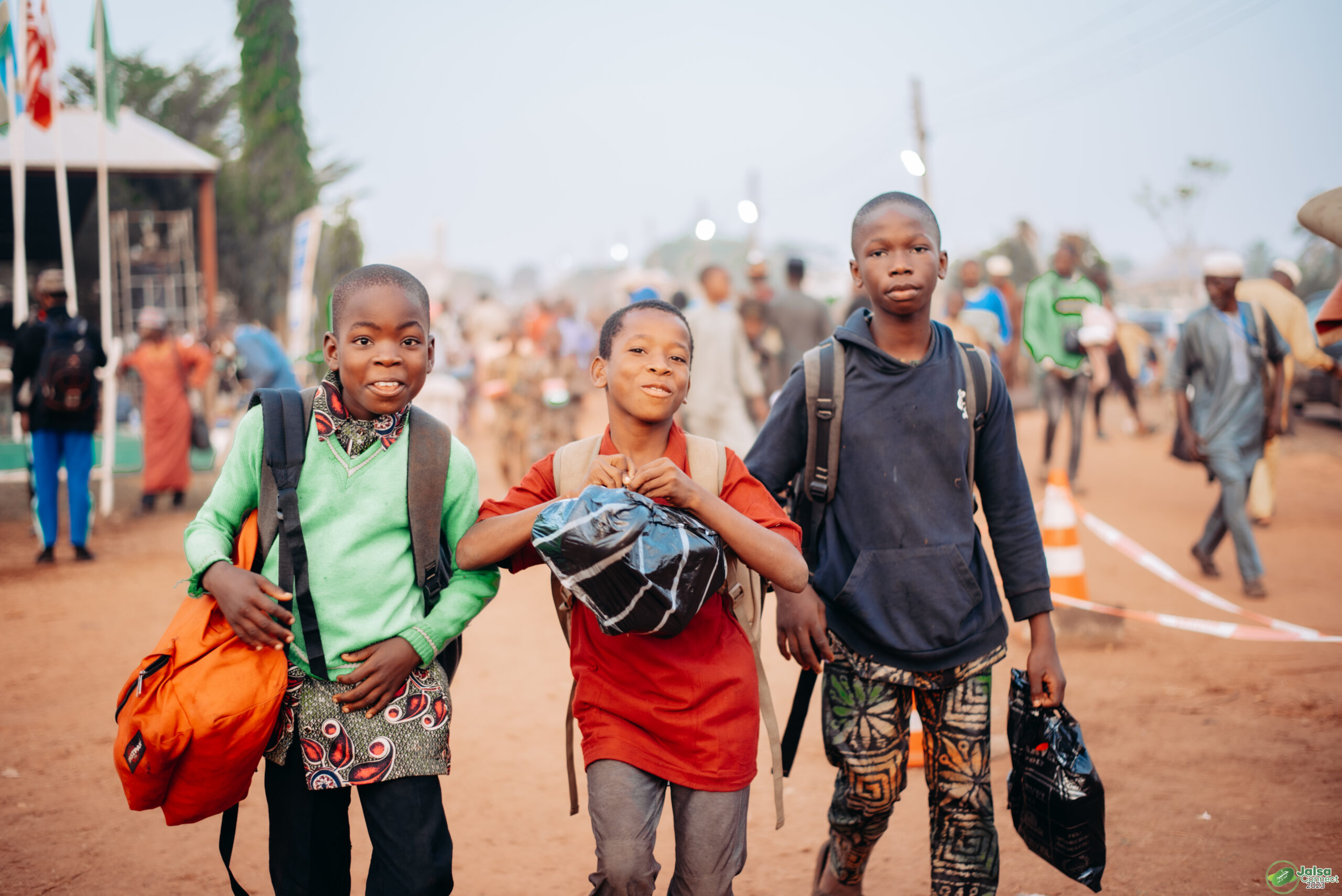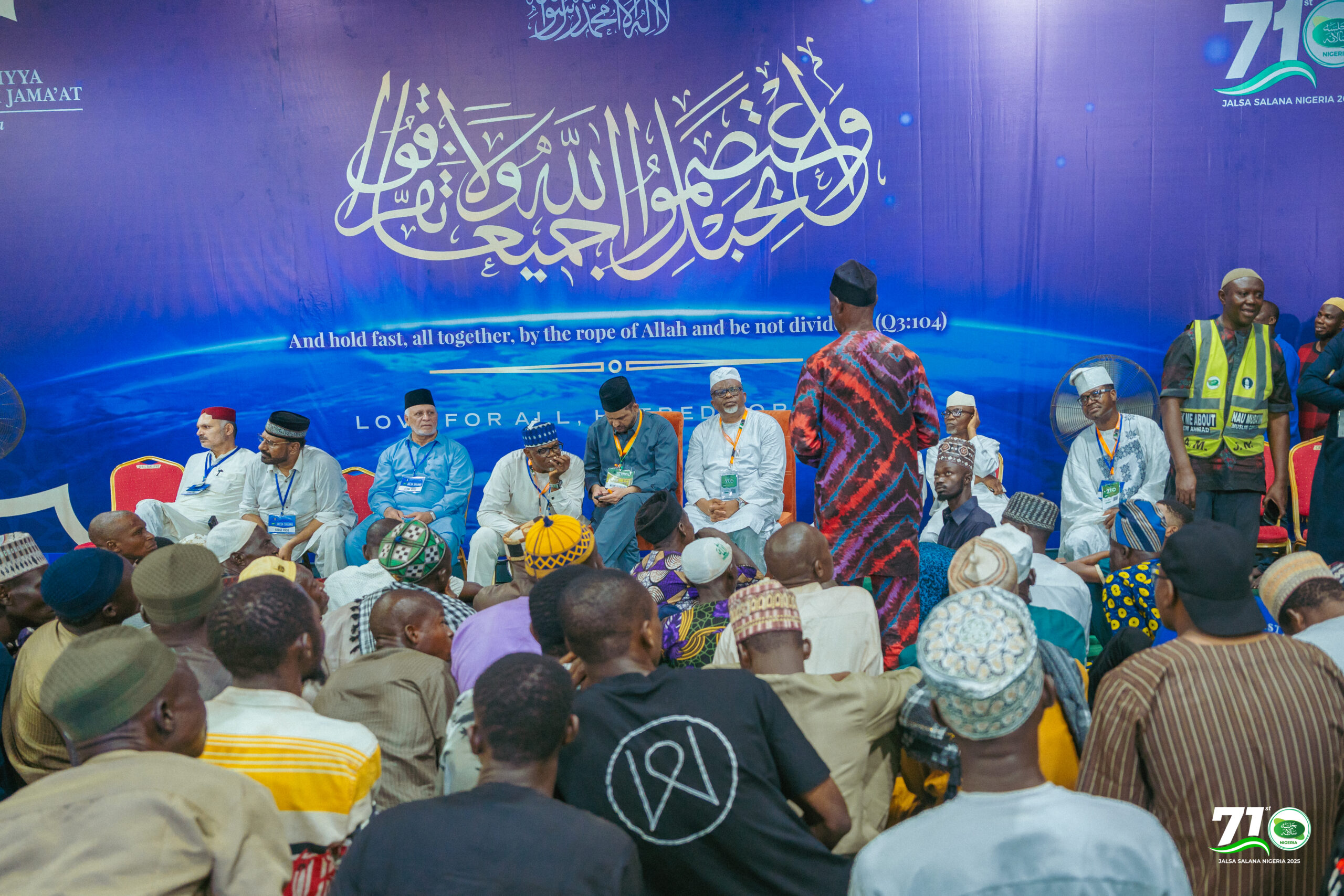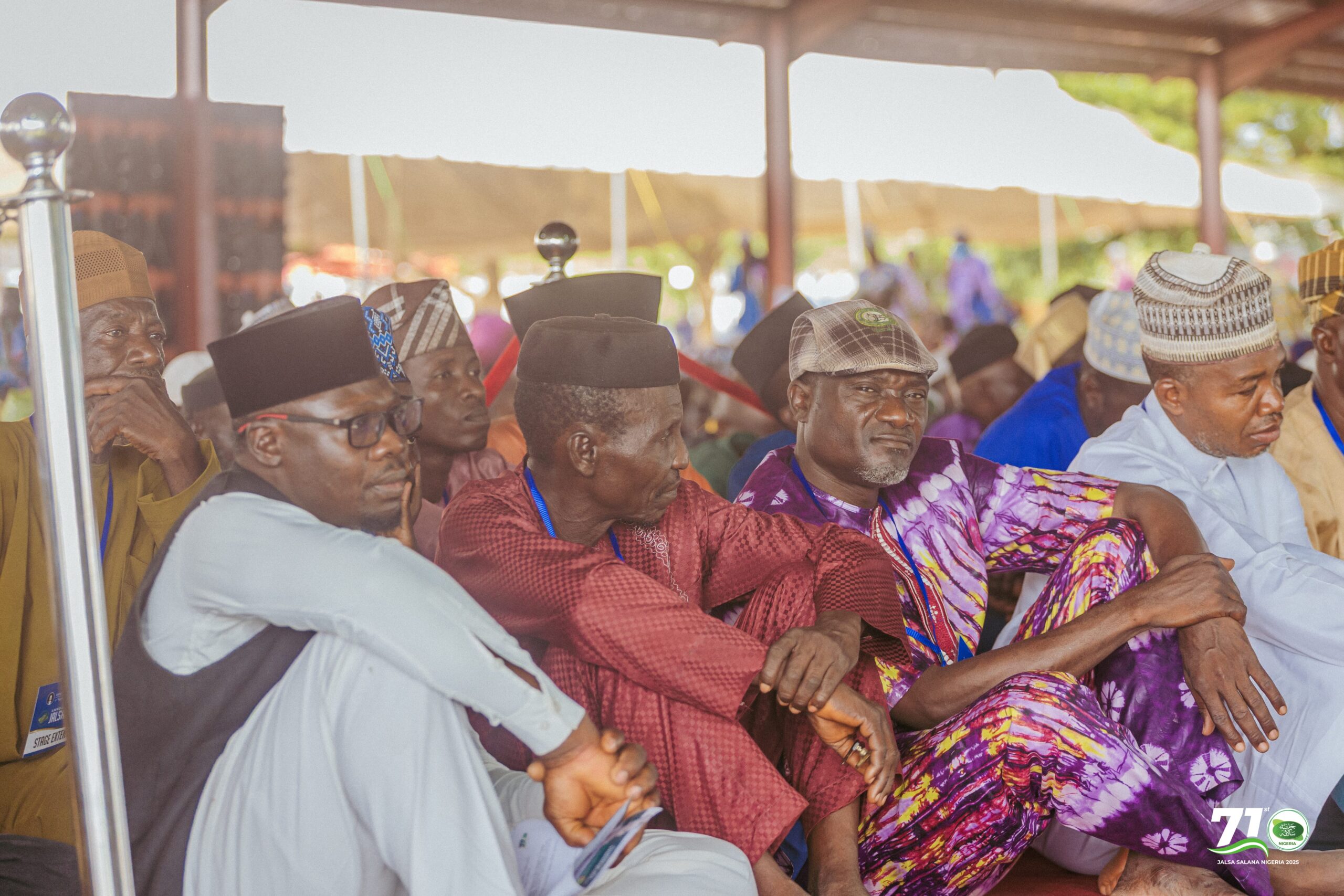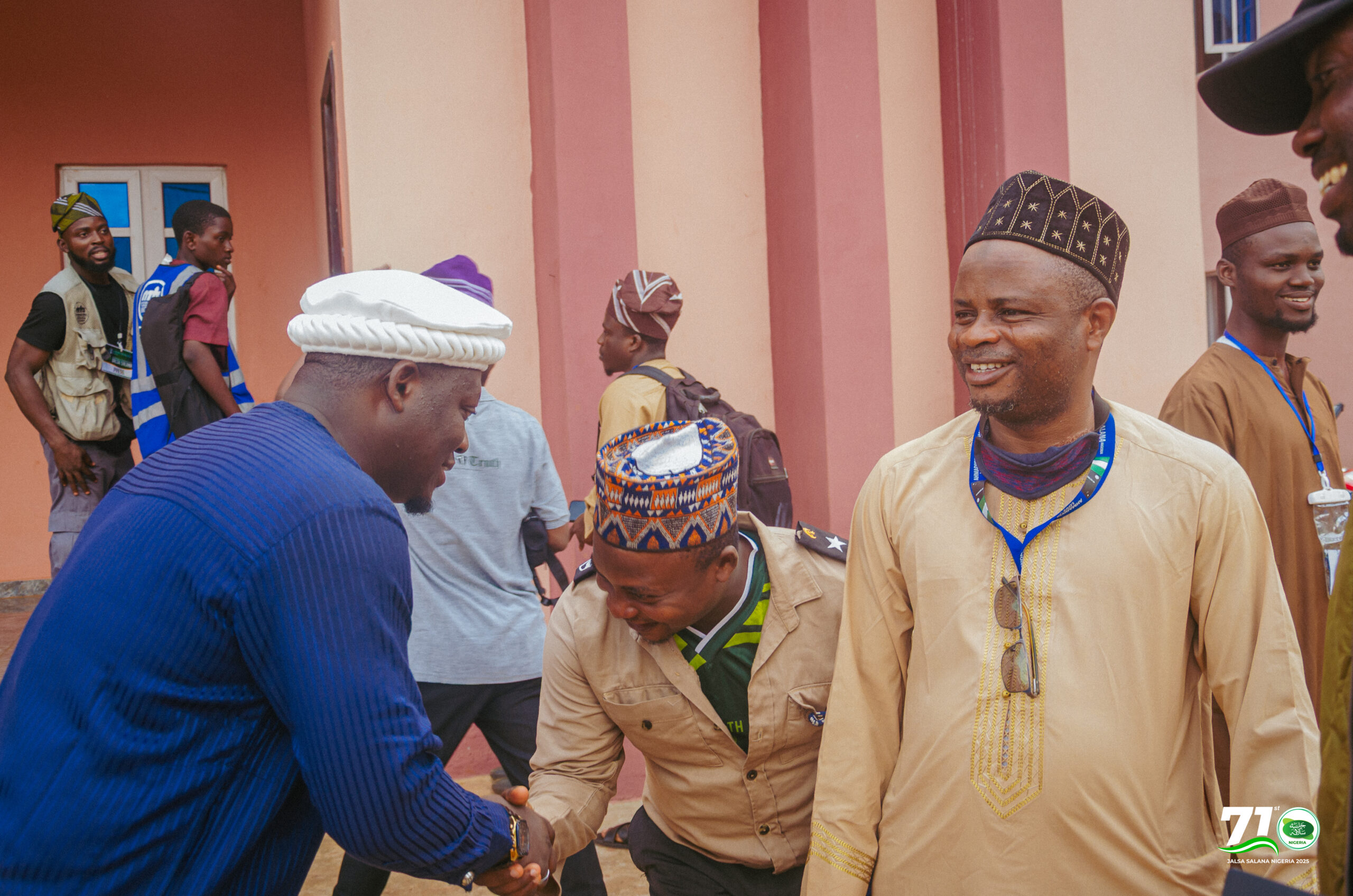By Lawal Ibraheem Olaniyi
Growing up, the experience of Jalsa Salana was more than a spiritual gathering for me and my childhood friends; it was a grand adventure! To us as Atfal, it was a playground, a sanctuary for fun, and a spot to perform our little mischief. While the elders were completely absorbed in the spiritual atmosphere—listening to lectures and participating in prayers—we were busy orchestrating our own escapades.
The kids’ section, or “Atfal Shed” as we called it, was supposed to be a place for us to enjoy the Jalsa programs in a manner suitable for our age group. However, we thought of it more as a detention center we had to escape from. Creeping out of the shed during programs was our version of the game “Subway Surfers.” The Khuddam were like the grumpy inspector in the original game, chasing us down and determined to return us to the shed.
Sometimes, they caught us. Those unlucky enough to be caught were marched back to the Atfal Shed in a comical line, with our brown overalls tied together to ensure no one made another break for it. But why would we want to leave the Atfal Shed? The mission was simple: sneak off to the football pitch for an exciting game or creep under the barricade toward the females’ section to find our mothers for some money or junk food.
But you might wonder, why would we head to the females’ section when the male section was closer? Rushing toward the male section meant bypassing layers of Khuddam guarding their posts, which could easily become our free ticket back to the Atfal Shed. It was a thrilling experience, and our youthful vigor often got the better of us.
After some triumphant moments on the football field, we’d spot a Khadim heading toward us, signaling the end of playtime. Chaos would erupt as we scattered in all directions, running through the cassava shrubs behind the Jamia hostel, trampling over the ridges made by the Hafiz class boys, and making our way to the men’s section for disguise. Those who weren’t quick enough were caught and returned to the children’s section.
We only returned to the Atfal Shed of our own accord when it was mealtime or when they handed out biscuits.
Mornings at Jalsa came early. Groggily rising from our sleep, we braced ourselves for another day of adventure. The Khuddam would awaken us at half past four with their familiar wake-up chant: “Wake up, wake up, wake up for Tahajjud…” Some of us had peed our pants, dreaming about the previous day’s escapades.
The Khuddam were always prepared for us—bathing and dressing us, washing our clothes, and getting us ready for Tahajjud. Despite our mischievous ways, we shared an unbreakable bond. We didn’t care about each other’s tribe or background; we played together on the field, prayed together in rows, and had meals together like lifelong friends. Little did we know, these friendships were planting seeds of brotherhood that would last a lifetime.
One incident stands out in my memory. It was a Jalsa year, and we had traveled from Ibadan in an Ajumose bus—a single-decker popular in Oyo State. Upon arrival at the Jalsa Gah, everyone dispersed to their respective sections. Among us was a young couple with a five-year-old boy.
After parting ways, the father, holding his son’s hand, strolled toward the men’s section while chatting with a friend. The atmosphere was lively—greetings exchanged here and there—until, suddenly, the boy was gone.
The father was stunned, as if he were dreaming. His heart pounded as he backtracked to the car park. In desperation, he called the mother to ask if the boy was with her, even though he clearly remembered holding him. The call only heightened the mother’s anxiety, and calming her felt like pouring water into a basket.
In a crowd of thousands, finding a five-year-old was like searching for a needle in a haystack. Minutes felt like hours as the father retraced his steps. Then, out of nowhere, someone found the boy—completely unbothered and carefree. He hadn’t even realized he was lost and was happily playing with some children he had just met.
This story highlights the carefree nature of children and the vibrancy of youth. More importantly, it underscores one of the lessons of Jalsa Salana: brotherhood beyond borders. Emulating this spirit can form the foundation of a peaceful society.





